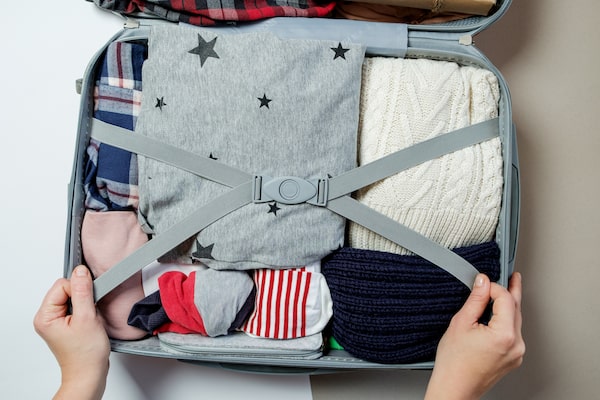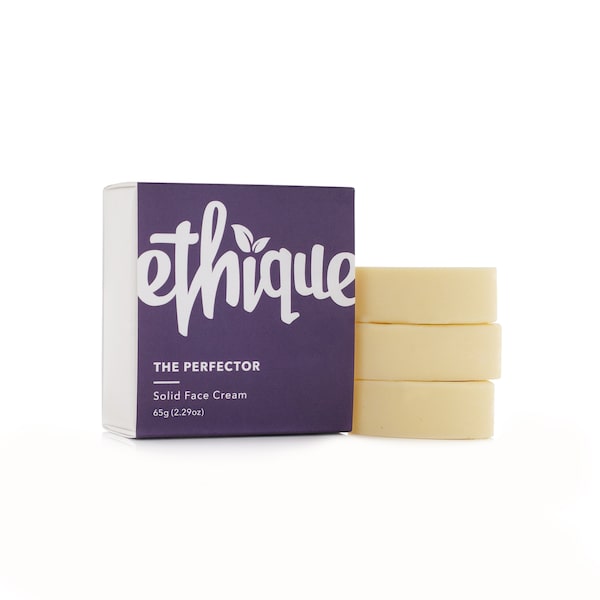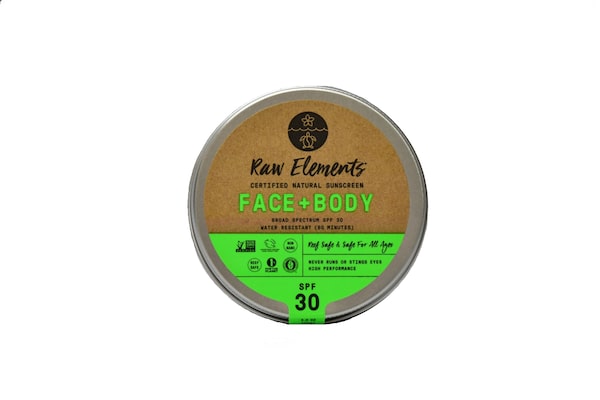
boyarkinamarina/The New York Times
Zero-waste advocate Lauren Singer starts a conversation about the importance of packing light by throwing out a daunting statistic. “Aviation is now one of the world’s major pollutants, accounting for roughly 2 per cent of the world’s CO2 output,” she says. While you might think it won’t matter if you throw in an extra pair of shoes, a couple more books and a spare outfit or two, a heavier load burns more fuel, emitting more carbon dioxide into the air.
“In my perfect, zero-pollutants world, airplanes would emit nothing but good vibes, but that’s not our reality," says Singer, who has lived a zero-waste lifestyle for eight years and is founder and CEO of the popular Package Free shop in Brooklyn, N.Y. “Still, we can make a difference by packing light and eco-smart."
Small things count, she adds. Bringing your own snacks and cutlery, for instance, helps cut down on the more than 5.2 million tonnes of cabin waste generated each year.
“The best way to contribute to a healthier environmental picture is to pack minimal, light and sustainable,” Singer says. “Everything we take – and leave behind – has a footprint. The trick is to do more with far less.”
Here are some tips on how to pack an eco-friendly travel bag.
Carry-on always
“Make it a goal to get everything you need into one carry-on suitcase and one personal item [purse, knapsack etc]‚” says Singer, whose average packing time for a week-long trip is roughly 15 minutes. And put it all in a sustainable bag. Good options include Patagonia’s Black Hotel duffel, which is both sustainable and fair trade – it uses a zero-wastewater discharging system, meaning wastewater from manufacturing the bag is treated so nearby waterways are not polluted – and Mountain Equipment Co-op’s Rolling Continent cargo pack, made with organic cotton, recycled nylon and PVC-free alternatives. Singer also advocates for buying luggage with a lifetime warranty, which improves the odds that a bag will be repaired rather than thrown in the trash.
Minimize toiletries or make your own
Shampoo and conditioner bars are a great way to minimize plastic use while travelling. Options include Lush’s Seanik shampoo bar or its cruelty-free bar, both $11.95. Singer makes her own organic, vegan toothpaste. “It might sound daunting but it couldn’t be easier,” she says. Her recipe calls for 2 tablespoons of organic coconut oil, 1 tablespoon of baking soda and 15 to 20 drops of organic essential oil, such as peppermint or anise. If you’re a snorkeller or scuba diver, make sure your sunscreen is reef-friendly. Between 4,000 and 6,000 metric tonnes of sunscreen enter the ocean every year, bleaching and killing off corals. You can tell a product is reef-safe if it has zinc oxide and titanium dioxide in it.
Pack snacks, reusable bottles and utensils
Airport and plane food comes wrapped in plastic. Avoid it by bringing your own sustenance in organic cotton bags or beeswax wraps. Singer says bamboo is an ideal replacement for plastic and the sturdy material can be moulded into reusable coffee cups, straws and utensils. Wet wipes have become a travel essential, but are not flushable and clog sewers. Replace them with bio-degradable tissues. And don’t forget to bring a cloth shopping bag to pick up groceries, take to the beach or store dirty laundry.
Go solar-powered
Eliminate the need to bring along a cache of cords to charge your electronics and try solar-powered chargers, which are ideal for daytime charging and short-term needs. They’re also perfect for adventure travellers who might not be near electrical outlets. Popular options include the Nekteck solar charger, Anker solar charger and Goal Zero Venture 30 solar power recharger kit.
Primed for packing
Shampoo and conditioner

The New Zealand brand Ethique makes shampoo and conditioner bars that are sustainably sourced and both the product and packaging is biodegradable. They’re also perfect for the efficient packer, with one shampoo bar equal to three standard sized bottles. $20 for shampoo, $23 for conditioner through ethique.com.
Sunscreen

Supplied
Choose an organic sunscreen that won’t wreak havoc on marine life. Raw Elements Certified Natural sunscreen contains 97-per-cent certified organic ingredients and, most importantly, doesn’t contain zinc oxide, making it ocean-friendly and reef safe. From US$15.99 through rawelementsusa.com.
Deodorant
Agent Nateur makes organic, all-natural deodorants for both men and women from sources that are non-toxic nor environmentally harmful. Plus, they come in metal containers, meaning they are one more way to avoid using plastic. From $29.50 at The Detox Market.
Toothpaste
David’s Natural Toothpaste is free of sulfates and comes in a recyclable metal tube. Its box packaging is paperboard made using renewable wind energy. US$9.95 through davids-usa.com.
Live your best. We have a daily Life & Arts newsletter, providing you with our latest stories on health, travel, food and culture. Sign up today.
Editor’s note: A previous version of this article stated Lauren Singer is the owner of of the Package Free shop. She is in fact the founder and CEO.
 Gayle MacDonald
Gayle MacDonald Dave McGinn
Dave McGinn